Books: An Interview with Harold Holzer
Sara Gabbard: Some of our readers already know, but for those who don’t: Why did Lincoln become your lifelong focus?
Harold Holzer: The “why” is harder to isolate than the “how.” It began for me in a fifth grade classroom in a rural neighborhood of New York City (yes, there was such a thing in 1960)—when an inspiring teacher brought in a hatful of names and asked us to cover our eyes and choose one at random as a research/writing assignment. As I have recalled many times, I selected Lincoln—by the grace of what guiding spirit I cannot imagine. The immediate result was exposure to great books by Richard Current and Stefan Lorant, and the motivation to keep exploring the subject long after my little “composition” was submitted and graded (hopefully well; I really can’t remember). As for the “why,” it was a combination of motivating circumstances: the Civil War centennial, which gripped so many young boys in the 1960s; the Kennedy assassination in 1963, with all of its echoes of 1865; the Civil Rights movement, advancing Lincoln’s unfinished work; the influence of a collector friend named Leo Stashin, who by 1969 had encouraged me to begin amassing Lincoln engravings and lithographs; and I suppose, in no small measure, the encouragement of R. Gerald McMurtry, emeritus director of the Lincoln National Life Foundation, who published my first articles on Lincoln iconography in the Lincoln Herald back in the 1970s. Embedded in the “why” is the original audience response to these early studies: had they not proven reasonably encouraging, I suppose I would have focused solely on my “day jobs:” journalism and public relations. Instead, academics and enthusiasts generally encouraged me to keep going. I’m glad they did; I hope the survivors of that era are still glad, too.
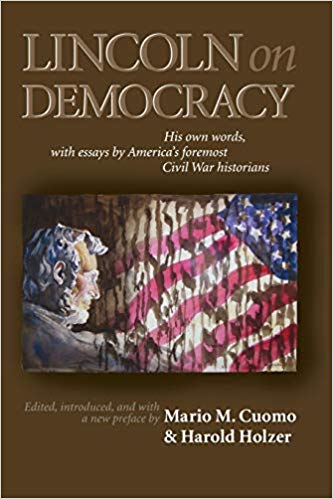
SG: You have a great skill as both author and editor. Do you prefer one or the other? What are the challenges of each?
HH: I prefer to write my own books. Sole authorship gives you complete control of the message. But I do also enjoy assembling collections and giving others a voice and a stake. Readers may have noticed that I seldom produce an edited book of essays in which I am not represented myself with a contribution; that way I get to enjoy the best of both worlds. I’m also aware that an edited book gives readers the chance to enjoy many fine scholars on the same subject—or to own a collection of lectures from a memorable symposium worth consecrating. That said, one of the best experiences I’ve ever had was working with the late Governor Mario Cuomo on Lincoln on Democracy, a treasury of speeches and letters on freedom, equality, and self-determination with essays by Lincoln scholars like the much-missed Dick Current, Hans Trefousse, and William Gienapp, and also longtime friends Mark Neely, Frank Williams, James McPherson, and Gabor Boritt. The project not only gave me the chance to work with some of my favorite colleagues, but also to produce a book that has been used in schools in Europe, the Middle East, and Asia, informing democratic movements abroad while reaffirming Lincoln as democracy’s greatest champion, exemplar, and spokesman at home. That’s a long way ‘round what could have been a very brief response to the question about which kind of work I prefer to do: the shorthand answer is “both.” And you haven’t even asked about co-authored books (it seems I’ve done more than my share of these) not to mention co-edited ones (rewarding if you get to work with skilled co-editors like Sara Gabbard).
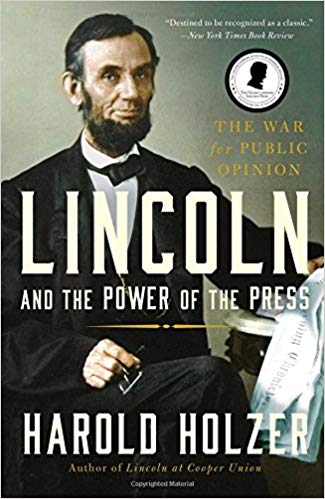
SG: Your books are so diverse in subject matter. How do you decide upon your “next project?”
HH: Here comes another long answer: in a variety of ways. In the case of Lincoln on Democracy, Governor Cuomo asked me to help him prepare what started as a primer on democracy for Solidarity Movement teachers in Poland. While I busied myself lining up essayists and translators, Cuomo’s press secretary, the late Gary Fryer, asked: “Aren’t you planning an English-language edition? Seems like a no-brainer!” Caught up in the international aspect, I hadn’t even thought of it until then! My first book, The Lincoln Image, was my idea, but got greenlit by bringing other scholars into a field in which I had labored in solitary for ten years. Some ideas ignite like the light bulb in a cartoon: Mine Eyes Have Seen the Glory, for example, and the reverse-transcript book on the Lincoln-Douglas debates. Others come as a result of newsworthy discoveries—like The Lincoln Family Album. Some are calendar-driven, like Lincoln President-Elect, specifically inspired by the approaching 2008-2009 White House transition; some, like Lincoln in New York, In Lincoln’s Hand, and The Union Preserved began with exhibitions that called for catalogues. A few titles feature my collected lectures, one of them (Emancipating Lincoln) published by Harvard University Press at the arrangement of my host for the talks, Henry Louis Gates. I thought of Lincoln and the Power of the Press (I should have thought of it sooner) because it united my two greatest lifelong interests, the man and the media. I must admit that some of my favorite projects fell into my lap because others asked me to undertake them: Louise Mirrer, CEO of the New-York Historical Society, invited me to do The Civil War in 50 Objects and Donna Hassler, director of Chesterwood, Daniel Chester French’s studio in Stockbridge, Massachusetts, commissioned me to write my new Monument Man about his life and art A few projects did devolve from pure, unexpected inspiration, like the moment in 2000 when legendary Simon & Schuster editor Alice Mayhew told me, at a Lincoln Forum dinner, how proud she was to have published so many books on Lincoln speeches, including Garry Wills’ Lincoln at Gettysburg, Ronald White’s Lincoln’s Greatest Speech, and Allen Guelzo’s forthcoming Lincoln’s Emancipation (well, not precisely a speech, but…). So I blurted out, “why not ‘Lincoln at Cooper Union?’” Alice replied, “Send me a proposal.” I did, and the rest, I suppose, is history.
SG: Which book(s) did you find it easiest to research? Most difficult?
HH: The “image” books (Lincoln, Confederate, Union) were the easiest if only because so much original visual material was already hanging on my walls, or so readily available (and so much fun to study alongside Mark Neely and Gabor Boritt) at repositories around the country. I loved being on the road calling up prints from the Library of Congress, the Maryland Historical Society, and the collections in Fort Wayne. The press book and Monument Man I loved researching because my wife, Edith, traveled with me to work at my side. The most difficult, I think, is the next one, not only because it ranges from 1789 to 2019, covers presidents before and after Lincoln (new territory for me) and requires source material from old newspapers to new Tweets. Plus it’s taking forever and I’m 70 years old now, with two grandsons to divert my attention. The lure of Charles and Leo alone make it difficult to concentrate.
SG: In your research, was there anything that led you to totally unexpected conclusions?
HH: I never appreciated the extent of Lincoln’s media mastery until I researched Lincoln and the Power of the Press; he was in fact as skilled a newspaper puppeteer as he was a political manipulator (in the best sense of the word). Take, for example, his secret ownership of a German-language pro-Republican weekly, or his Administration’s mass-crackdown on opposition newspapers, the extent of which was previously unknown. Nor did I know before 1984 how much (but how subtly) Lincoln conspired to advance his own image and cement his place in history through the fine arts, popular prints, and photography (occasionally in several mediums at once). Many earlier books presented Lincoln pictures; none shed light on why he so often posed for them. It wasn’t to fill the Lincoln family album I mentioned earlier, but other people’s albums, as well as walls and pedestals, nationwide. If I’ve contributed anything to the field, I hope it has been shining a light on the various advances in publishing—of words and images—that helped get Lincoln elected and enshrined, and which he took such a firm hand in creating.
SG: I keep your Lincoln Anthology close at hand for research purposes. What an enormous project. Please describe how you became involved. How did you determine which sources to use?
HH: Thank you for that! I’d been (still am) a big fan of the Library of America and its single-minded commitment to publishing the great writing of great writers, political and literary alike. Of course, Don Fehrenbacher had already produced two sterling volumes of Lincoln, but, to be honest, I really wanted into the series. So I approached LOA editor Max Rudin with what I thought was a compelling idea: a supplementary volume on major writers who’d written about Lincoln—a list that included Whitman, Hawthorne, Melville, Karl Marx, even Bram Stoker, author of Dracula, all the way to Allen Ginsberg, Gore Vidal, and E. L. Doctorow. I had been collecting so much of the early source material for so long that I had many transcripts already on file. The rest was just fun to track down, and read and re-read, because down deep I’d always suspected that all the greatest poets and prose writers had at one point dealt with Lincoln. One text I knew we needed to feature was the unexpurgated manuscript of Robert Russa Moton’s dedication day speech at the Lincoln Memorial in 1922. I remembered its most important paragraphs—an impassioned, impatient demand for freedom and equality now for his fellow African Americans—had been censored. He never read them aloud. I’m so proud we published it in full…and even prouder that the Library of America now sells The Lincoln Anthology and the Fehrenbacher Lincoln together in a boxed set. I hope Don would have approved.
SG: In the Introduction for your Anthology, you commented that “Generational change began to reshape Lincoln’s legacy at the turn of the century.” Please elaborate on that statement.
HH: Frederick Douglass famously said in 1876 that Lincoln had been quintessentially the white man’s president, not the black man’s—that African Americans were but his stepchildren. I think those remarks inspired a kind of “freedom moment” for white writers, too, long solely tethered to Lincoln’s reputation as an emancipator and martyr. New generations saw Lincoln also as a nationalist, a spokesman for democracy and majority rule, a writer (as Edmund Wilson observed, gifted enough to rank as a great craftsman in his own right); and an enduring, usable symbol of what Gabor Boritt memorably called “the right to rise” in an open society. This meant interpreting him not only as a liberator but as a spokesman for the American Dream, and arguably its greatest exemplar. Inescapably, revisionist journalism and literature, like revisionist history, sometimes seeks the lowest point of gravity, and new generations also searched for and unearthed Lincoln’s flaws and shortcomings—some to humanize him, some to topple him from his pedestal, others to offer new appraisals of his views on race. In an age in which monuments get routinely toppled, I think he has stood the test of time pretty well.
SG: In that same Introduction, you stated: “The passage of time also affected Lincoln’s role in contemporary politics.” Please give examples.
HH: Well, until 1912, Lincoln remained the talismanic symbol solely of the Republicans, even when it morphed from a party advocating freedom and equality to one committed to enshrining “income inequality”—a/k/a the Gilded Age. It took a Southern-born Democrat, Woodrow Wilson, to claim a share of Lincoln for the opposition party, in Wilson’s case to justify American involvement in a world war. Boy, was he vilified by the Republican press for daring to do so. Theodore Roosevelt (who had watched Lincoln’s New York funeral as a small boy) tried to seize Lincoln as the inspiration for his brand of progressivism, but it was his cousin Franklin who moved African Americans into the Democratic fold for the first time by agreeing that Lincoln’s work had never been finished and arguing that he was the one to finish it. He began peppering his speeches with Lincoln references and even hired Robert E. Sherwood, Pulitzer Prize-winning playwright (Abe Lincoln in Illinois) to help keep Lincoln a part of his argument for preparing for war against the Axis. Ever since, both parties have battled to identify with Lincoln—and several American Presidents, Republicans and Democrats alike, from both Presidents Bush to Bill Clinton to Barack Obama—have made manifest their appreciation for him, some of which I’ve been honored to hear from their own lips. It’s been a fascinating turn of the wheel, and it’s a good thing indeed that Lincoln remains an ideal for leaders across the spectrum. But I do think it’s fair to say that Lincoln would be pretty shocked if he came back today and found his old political party the more conservative of the two, and the one that attracts the majority of white votes in the once solidly Democratic South.
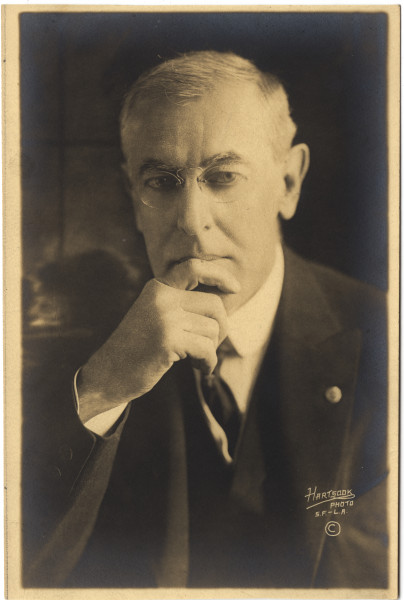
SG: Where do Lincoln studies stand today? Which areas especially need new research and interpretation?
HH: Every time I think we’ve hit a plateau or, scarier, a lull in the recent efflorescence in Lincoln and Civil War scholarship, a scintillating new work appears that takes my breath away. The next few months alone will welcome Matthew Pinsker’s long-awaited appraisal of Lincoln as a politician; Ron White’s new interpretation of Lincoln’s writings; the concluding volumes of Sidney Blumenthal’s compelling study of Lincoln’s life and times; a new book about the inaugural journey by Ted Widmer; a new short biography by Richard Striner, and a new collection on Lincoln and civil liberties edited by Jonathan White. And these are just the works in progress I know about. We will continue to need updated inquiries into Lincoln on race, war, religion, and nationhood, and every new generation of scholars reliably produces them. I doubt whether there are earth-shattering revelations yet to come about this exhaustively studied character, but there are plenty of things well worth reinterpreting. If I were suggesting fresh areas of study (those I don’t want to keep in my pocket for myself) I’d propose Lincoln in modern American culture, and above all, new, expanded, and definitive editions—whether in print or online (providing I can learn how to access them)—of the Collected Works and Lincoln Day by Day.
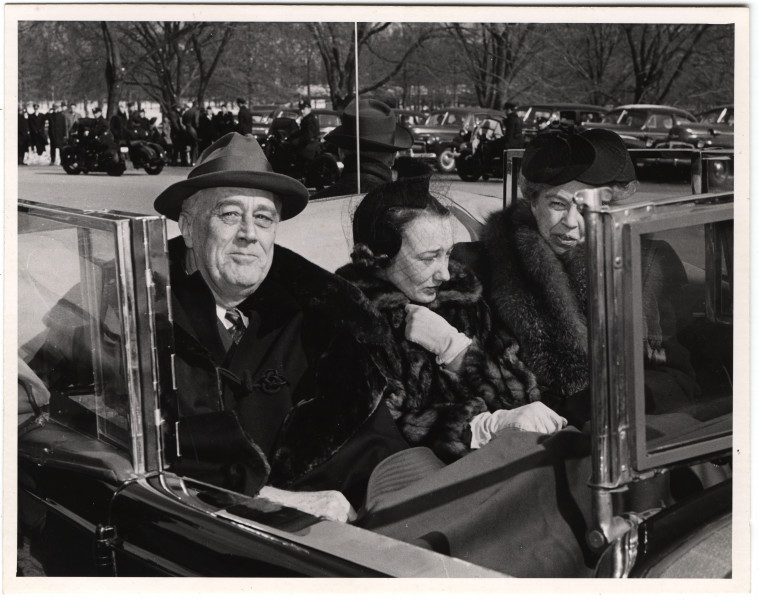
SG: Can you share your upcoming projects with our readers?
HH: Happily. From an organizational standpoint, I’ve become chairman of the Lincoln Forum (www.thelincolnforum.org) with Frank Williams’ retirement, and I want to work to sustain that organization, further build the quality of its annual November symposia at Gettysburg, revive its publishing program, and build its interactive online presence. I not only love the Forum and its members, I regard its future success as a test case for the survival of Civil War Round Tables and Lincoln Groups nationwide. Their membership decline, my gut tells me, is much more attributable to the young generation’s preference for solitary web surfing (over group experiences) than to loss of interest in the field. As far as writing—and it’s never very far—I’m finishing a new book for a new publisher, E. P. Dutton, called The Presidents and the Press (or The Presidents vs. the Press, I haven’t quite decided) for spring 2020. It aims to cover the subject from Washington, Adams, and Jefferson, all the way to the age of Twitter and Trump, with Jackson, Lincoln, the Roosevelts, JFK, LBJ, Nixon and our recent presidents in between. I’ve also proudly signed on as a consultant to a forthcoming CNN documentary about Lincoln. I’m collaborating as well with the consummate collector Benjamin Shapell on an illustrated Lincoln biography grounded in his own archive and focused on how Lincoln’s generous spirit animated his creative output. I’m also editing—yes, back to editing—a volume about Hunter College (where I’ve been privileged to run the Roosevelt House Public Policy Institute these past four years), to mark its 150th anniversary and celebrate its powerful impact on New York City and the education of women and the children of immigrants. After that, does anyone have any ideas or assignments?
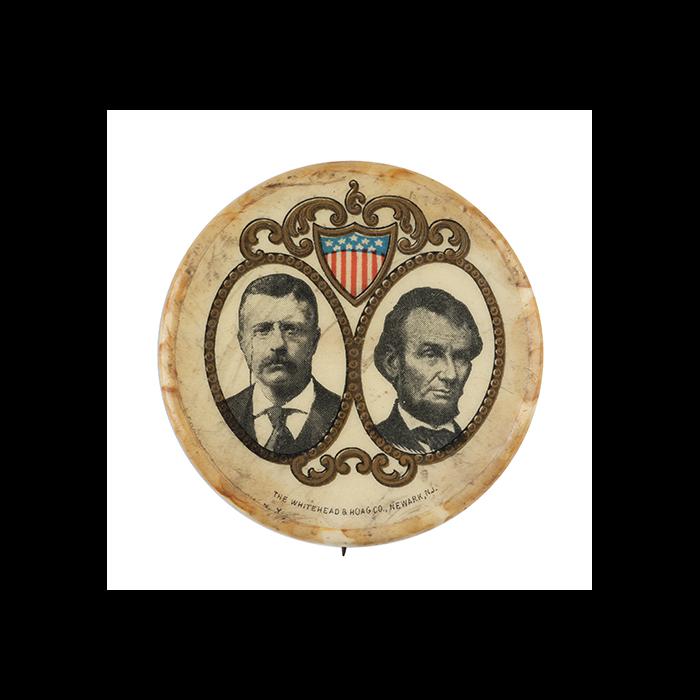
Harold Holzer is the Jonathan F. Fanton Director of Roosevelt House Public Policy Institute at Hunter College.
